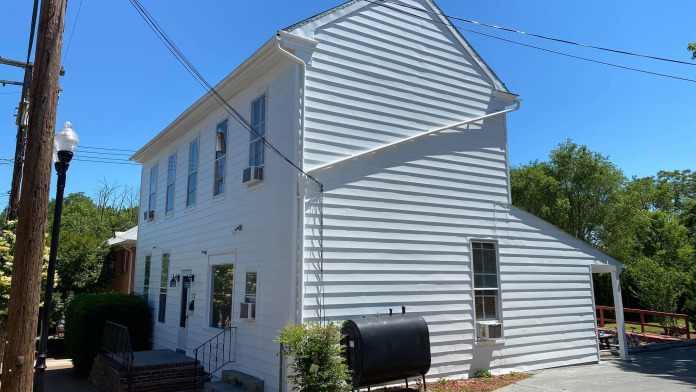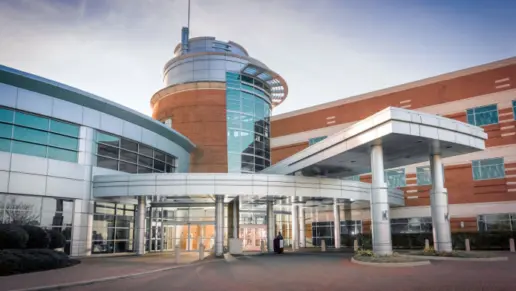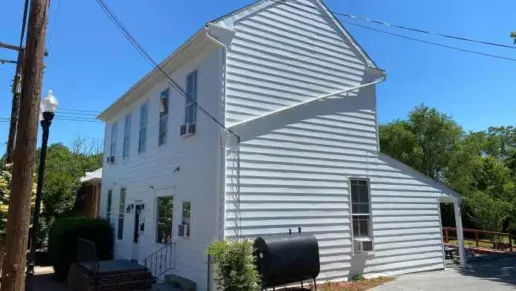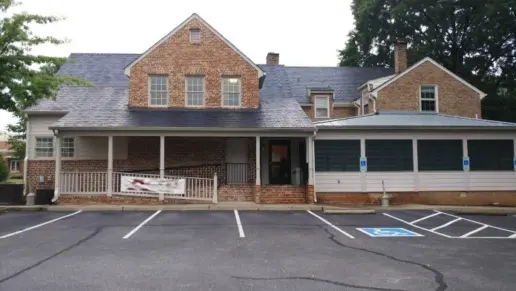Lord Fairfax Community was a good place for me, to be honest I had really low expectations about receiving treatment but gladly I was completely wrong, they put a lot of effort and at last made me able to recover. There are some things that need to improve but the most impor ...
About Lord Fairfax Community
Lord Fairfax Community offers inpatient treatment for individuals with alcohol and/or substance addiction. The program includes aftercare planning, practical life skills, group discussion and more. Lord Fairfax Community is located at Winchester, Virginia.
The Lord Fairfax House was established in 1976 by the Council on Alcoholism Lord Fairfax Community. Theye moved to 512 S. Braddock Street in August, 1984 – opening the first co-ed transitional domiciliary available in Winchester with one client in December of that year.
Lord Fairfax Community’s halfway house is not a rescue mission nor merely a “hotel”. Rather it is a continuation of a client’s treatment program – providing a home where they can once again begin to enjoy life free of chemicals.
The primary purpose of the halfway house program is to help recovering individuals learn to live in society without drugs or alcohol. Through their program, they provide support and guidance using the 12 Step Program.
Latest Reviews
Rehab Score
Gallery

Location
Accepted Insurance
Other Forms of Payment
Self-pay involves paying for treatment out of your own pocket. You can use savings or credit, get a personal loan, or receive help from family and friends to fund your treatment. If you don't have insurance or your insurance plan doesn't cover a specific program, self-pay can help ensure you still get the care you need.
Financial aid can take many forms. Centers may have grants or scholarships available to clients who meet eligibility requirements. Programs that receive SAMHSA grants may have financial aid available for those who need treatment as well. Grants and scholarships can help you pai for treatment without having to repay.
Addiction Treatments
Levels of Care
Treatments
The goal of treatment for alcoholism is abstinence. Those with poor social support, poor motivation, or psychiatric disorders tend to relapse within a few years of treatment. For these people, success is measured by longer periods of abstinence, reduced use of alcohol, better health, and improved social functioning. Recovery and Maintenance are usually based on 12 step programs and AA meetings.
When you enroll in drug rehab in Virginia, a treatment plan is designed by professional staff in order to help you overcome drug addiction and modify addictive behaviors. This may include evidence-based treatments, group and individual therapy, and relapse prevention.
Opioid rehabs specialize in supporting those recovering from opioid addiction. They treat those suffering from addiction to illegal opioids like heroin, as well as prescription drugs like oxycodone. These centers typically combine both physical as well as mental and emotional support to help stop addiction. Physical support often includes medical detox and subsequent medical support (including medication), and mental support includes in-depth therapy to address the underlying causes of addiction.
Substance rehabs focus on helping individuals recover from substance abuse, including alcohol and drug addiction (both illegal and prescription drugs). They often include the opportunity to engage in both individual as well as group therapy.
Programs


Clinical Services
Group therapy is any therapeutic work that happens in a group (not one-on-one). There are a number of different group therapy modalities, including support groups, experiential therapy, psycho-education, and more. Group therapy involves treatment as well as processing interaction between group members.
In individual therapy, a patient meets one-on-one with a trained psychologist or counselor. Therapy is a pivotal part of effective substance abuse treatment, as it often covers root causes of addiction, including challenges faced by the patient in their social, family, and work/school life.
Life skills trainings involve all the skills a person must have in order to function successfully in the world. These include time management, career guidance, money management, and effective communication. Truly successful addiction recovery is based on the ability to not only live substance-free, but to thrive. Life skills teaches the practical necessities of functioning in society, which sets clients up for success in life, and therefore sobriety.
Contact Information
512 South Braddock street
Winchester, VA 22601







